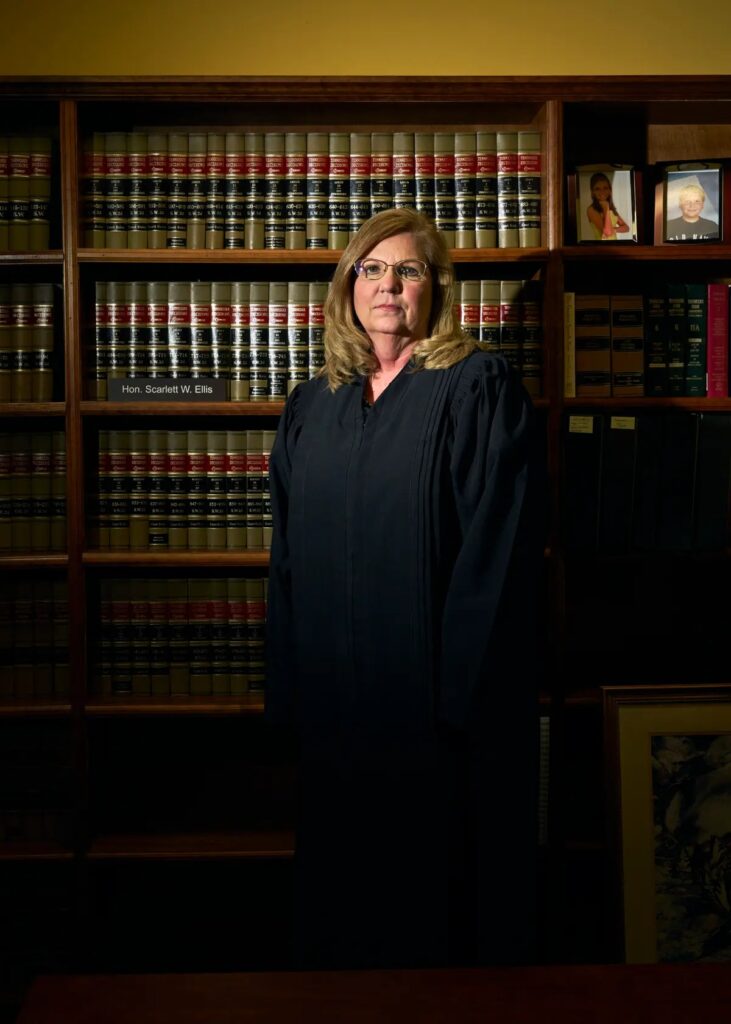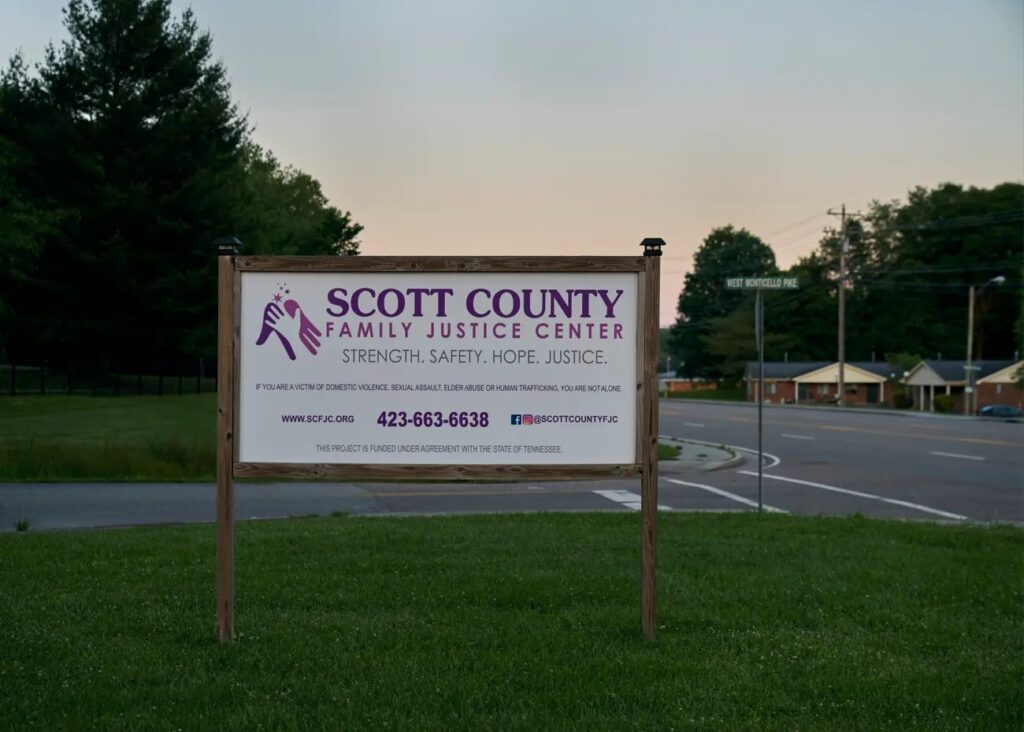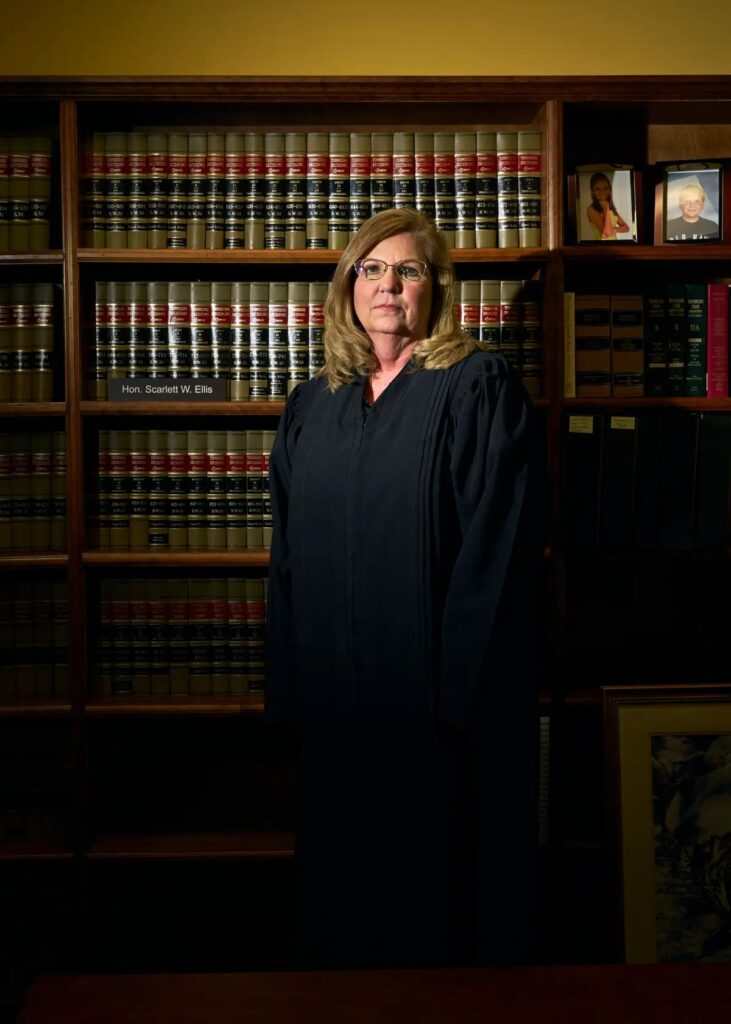Two Republican state lawmakers filed legislation this week that would change Tennessee’s firearms dispossession form, closing a dangerous loophole that experts say leaves domestic violence victims vulnerable.
Tennessee is one of about a dozen states that allows someone who is ordered to surrender their guns to give them to a third party like a friend or relative. And it’s one of the only states that doesn’t require that person be identified in court. In such cases, someone could say they gave up their guns but still have access to them without any oversight, advocates for domestic violence victims say.
This bill, introduced to the statehouse by Rep. Kelly Keisling, R-Byrdstown, and Sen. Becky Massey, R-Knoxville, would change the state’s form, requiring the name, the address and the signature of the recipient of the dispossessed guns.
The legislation was inspired by WPLN and ProPublica’s reporting in rural Scott County, where the court system amended the state form to identify the third party in hopes of adding an extra layer of accountability to the process. That reporting revealed how Scott County is a leader in the state in revolutionizing its approach to domestic violence by both protecting victims and rehabilitating offenders. Rep. Keisling represents Scott County.
A key part of their work is ensuring violent people do not have access to weapons when they are legally barred.

“It really is an added protection for the peace of mind of victims,” said Judge Scarlett Ellis, who oversees Scott County’s domestic violence court. “There’s a little bit more accountability.”
Ellis said she has not run into any compliance problems with the amended form — even in a rural, conservative, second-amendment friendly county like hers. Scott has voted for Donald Trump by the highest percentage of any county in Tennessee for the past two presidential elections.
“This is just a clear example of when a community gets behind enforcing the law, it doesn’t matter how big you are, how small you are — changes can be made,” Ellis said.
The state’s firearms dispossession forms are used when someone is convicted of a domestic violence charge or is subject to an order of protection. Under Tennessee law, those offenders are prohibited from possessing a gun. It’s an important step in de-escalating conflict in relationships, experts say.
Research shows that domestic violence incidents are highly likely to become lethal when a firearm is involved. And the dangers extend outside the home, too — one study showed domestic violence calls are the most dangerous for law enforcement, and researchers found that mass shooters often have a history of domestic violence.
“It’s already a law that this is supposed to happen. We just want it to be implemented,” said Christy Harness, who has worked in domestic violence in Scott County for decades, and now manages the county’s family justice center that helps support victims.


While amending the form is a simple step, the stakes are high. Tennessee consistently has one of the highest rates of women killed by men, and most of those homicides are committed with guns.
WPLN and ProPublica investigations over the last few years have found that the state’s lax gun laws and enforcement allow firearms to remain in dangerous hands. Our analysis of homicide data and court records in Nashville, for example, showed that nearly 40% of victims killed in domestic violence shootings were killed by someone who should not have had access to a firearm at the time of the crime.
“Had they not been able to maintain possession of that firearm or it was given to somebody who we could check with,” Harness said, “Then maybe we’ve done that extra step to save somebody’s life.”




